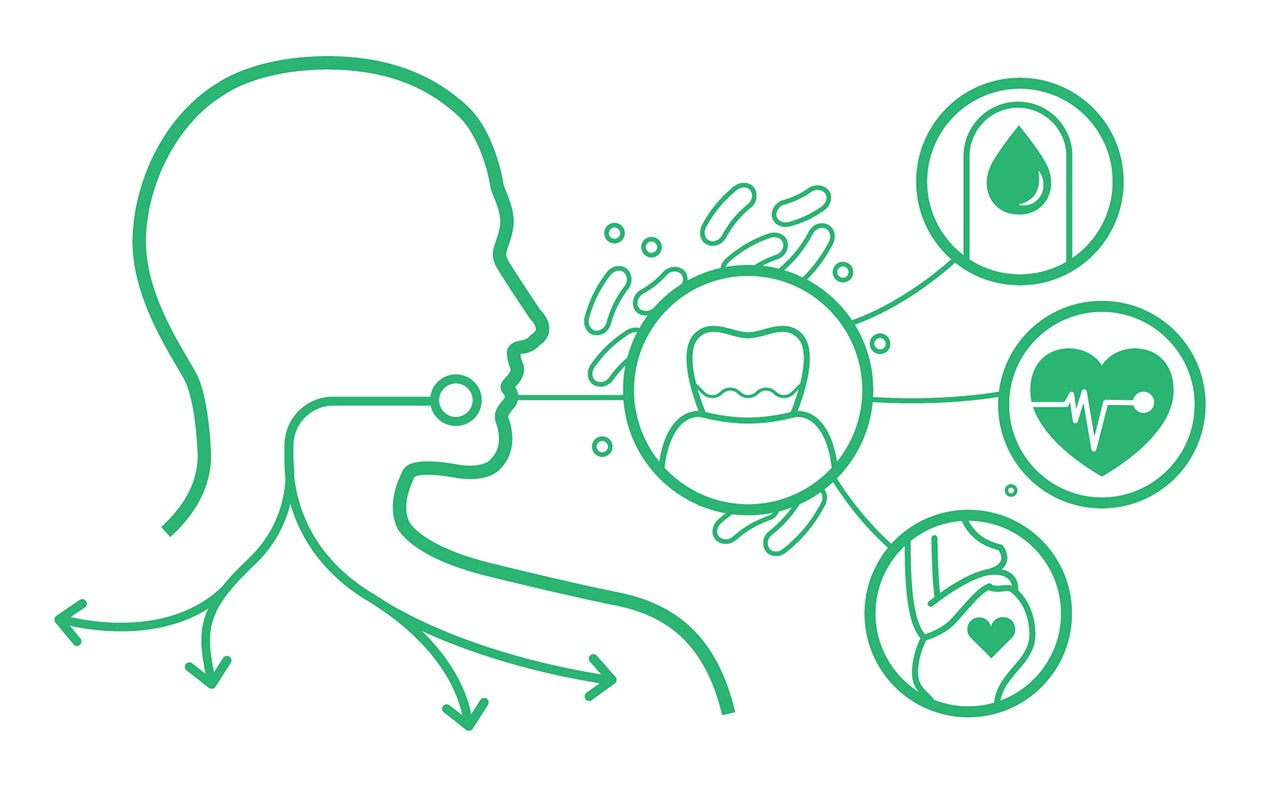
High Blood Pressure And Oral Health
According to the World Health Organization (WHO), an estimated 1.28 billion adults worldwide aged 30–79 years have hypertension. Hypertension, also known as high blood pressure, can often go undetected and can lead to the development of several serious conditions if left untreated.

While genetics and age play a role in developing hypertension, several factors are well within your control to reduce your risk of developing high blood pressure.
Let’s take a look at what hypertension is, why it’s a condition that should be taken seriously, and how improving your oral health can greatly reduce your risk.
What is hypertension?
Hypertension, also known as high blood pressure, is a medical condition characterised by elevated blood pressure levels in the arteries. Blood pressure is the force exerted by the blood on the walls of the arteries as it flows through them.
How blood pressure is measured
Medical professionals use a blood pressure cuff (called a sphygmomanometer) to measure the force of blood on the walls of the arteries as it flows through them in millimetres of mercury (mmHg).
This measurement consists of two numbers – systolic pressure (the top number) and diastolic pressure (the bottom number).
Systolic pressure is the measurement of pressure in blood vessels when the heart contracts or beats, while diastolic pressure is the measurement of pressure in the vessels when the heart rests between beats.
What’s considered high blood pressure?
Blood pressure is considered normal when the systolic pressure is less than 120 mmHg and the diastolic pressure is less than 80 mmHg. Between 120 and 130 mmHg is considered elevated blood pressure. Hypertension is diagnosed when the systolic pressure is consistently at or above 130 mmHg and/or the diastolic pressure is consistently at or above 80 mmHg.
Why is high blood pressure dangerous?
High blood pressure puts increased strain on the blood vessels and organs throughout the body. Over time, this can cause damage to the blood vessels, which can increase the risk of several serious health problems, including cardiovascular disease, kidney disease, eye damage, and even cognitive decline.
In addition to these serious health problems, hypertension can also lead to other complications such as aneurysms, peripheral artery disease, strokes, and heart attacks.

The connection between oral health and hypertension
A recent study by the University College of London found that adults with periodontitis (gum disease) may be “twice as likely to have higher blood pressure compared to those with healthy gums.”
Professor Francesco D’Aiuto of the UCL Eastman Dental Institute pointed to evidence that indicates periodontal bacteria trigger inflammatory responses that can ultimately lead to the development of hypertension. “This would mean that the link between gum disease and elevated blood pressure occurs well before a patient develops high blood pressure.”
Additional risk factors for developing high blood pressure
As noted earlier, hypertension can be passed down genetically, and older individuals have an increased risk of developing high blood pressure.
There are, however, additional – manageable – risk factors:
- Being overweight or obese: Excess body weight puts added strain on the heart and blood vessels, leading to increased blood pressure. In addition, excess body fat can cause hormonal changes that contribute to hypertension.
- Not being physically active: Regular physical activity helps to keep the heart and blood vessels healthy, and can also help to maintain a healthy weight.
- High-salt diet: Consuming too much salt in the diet can lead to water retention and increased blood volume, which can cause an increase in blood pressure.
- Drinking too much alcohol: Excessive alcohol consumption can damage the heart and blood vessels, leading to an increase in blood pressure. In addition, alcohol can interfere with the effectiveness of blood pressure medications.

In addition, regular dental check-ups and cleanings will enable your dentist to recognize early warning signs of gum disease and help you develop a plan to counter its progress.
Finally, medical professionals recommend maintaining a balanced diet and a healthy lifestyle with regular exercise to ensure you are doing your part to maintain healthy blood pressure.















